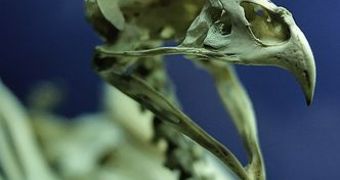The latest discoveries made by paleontologists are always said to “rewrite evolutionary history”, but is this really true and mankind has learned nothing about its past?
A few researchers at the University of Bristol wanted to find out exactly how strong is our understanding of evolution.
The team led by Dr James Tarver, carried out a study on dinosaur and human evolution investigations, and published the results in this week's Proceedings of the Royal Society B.
Their findings suggest that most fossil discoveries do not make a huge difference and certainly do not contradict any of the previous results, but rather confirm our understanding of the evolutionary history.
This can be applied especially to the fossil records of the human evolving from monkey relatives.
Every new discovery makes a buzz in the media and a big fuss in the scientific literature, even if discoveries of early human fossils are extremely rare.
Most of them are from different periods in human evolution and simply fill in the eventual gaps in the fossil records, that we already knew existed.
Tarver, the leader of the study said: “human fossils are very rare, and they are costly to recover because of the time involved and their often remote locations.
“Scientists may be pushed by their sponsors, or by news reporters, to exaggerate the importance of their new find and make claims that ‘this new species completely changes our understanding’.”
As far as dinosaur evolution goes, the story is a bit more complex, as new dinosaur fossils are being found in places all over the world, where nobody has looked for them before.
Fossils discovered in South America, China or Australia are fundamentally challenging the existing ideas about dinosaur evolution and every discovery tells scientists that there many more dinosaur species out there.
Professor Michael Benton, another member of the team, said that “these are important results.
“It might seem negative to say that new finds do, or do not, change our views, however, to find that they don’t means that we may be close to saturation in some areas, meaning we know enough of the fossil record in some cases to have a pretty good understanding of that part of the evolutionary tree.”
Professor Phil Donoghue agreed and said that “we can use these studies as a way of targeting new expeditions.
“If dinosaurs are poorly understood from a particular part of the world, or if some other group is altogether incompletely known, that’s where we need to devote greater efforts.”

 14 DAY TRIAL //
14 DAY TRIAL //